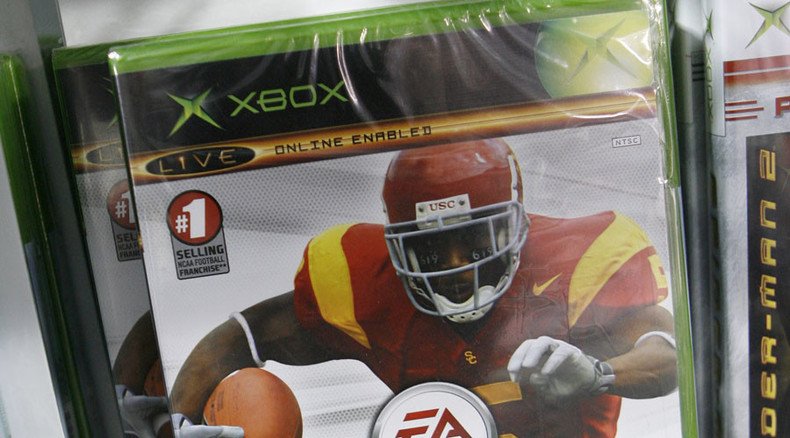NCAA, EA Sports to pay $60mn to college athletes for using likenesses in video games

College athletes whose likenesses were used in video games will split a $60 million payout, receiving up to $7,200 each, according to a settlement of several class-action lawsuits. Over 20,000 student-athletes have filed claims so far.
US District Judge Claudia Wilken approved the payment on Thursday. It will go to the National Collegiate Athletic Association (NCAA) football and men’s basketball players whose names, images and likenesses were used in NCAA-branded video games produced by Electronic Arts (EA) Sports.
NCAA rules preclude student-athletes from earning money from playing sports. However, college athletics’ governing body allowed the players’ likenesses and names to be used by EA Sports and the Collegiate Licensing Company, the nation’s leading collegiate trademark licensing and marketing business.
Wilken combined two previously agreed-to settlements to create the $60 million payout, CBS Sports reported.
READ MORE: College athletes file petition to create labor union
Earlier this week, a federal magistrate judge ruled in favor of former University of California, Los Angeles (UCLA) basketball player Ed O’Bannon and 19 others, Sports Illustrated reported. They had sued the NCAA, claiming that the organization had violated US antitrust laws by prohibiting the athletes from receiving any of the revenue the NCAA earned by selling their likenesses.
Former Arizona State University and University of Nebraska quarterback Sam Keller sued the NCAA’s two partners for improperly using his likeness in their college football video games, which they had been producing for over 20 years. In June 2014, EA Sports and Collegiate Licensing reached a $40 million settlement in that case, after judges refused to accept the video game maker’s argument that the First Amendment protected its use of player likenesses.
“It’s a landmark day,” Steve Berman, one of the plaintiffs’ lawyers told USA Today. “It’s the first time student-athletes will get paid for use of their name, image and likeness — and we’re anxious to get the settlement funds to the students.”
NCAA video game settlement could mean $1,000 to $6,700 for affected athletes. http://t.co/Y0o1JZxfmYpic.twitter.com/DKbwTRjoAu
— BizBuzz (@IndyStarBiz) July 3, 2015Wilken may increase the size of the pot available to the athletes by reducing the costs and fees that attorneys involved in the case receive from 33 percent to 30 percent, Berman said.
“She wants what we want: a fair payment for the attorneys, who took tremendous risks, and the best results for those athletes who make claims,” Rob Carey, another of the plaintiffs' attorneys said, according to Sports Illustrated.
Players who were on NCAA football and men’s basketball teams that were published or distributed in video games between May 2003 and September 2014 ‒ including current student-athletes ‒ are eligible to receive up to $7,200. The amount each will be paid depends on whether a player’s name appeared on a team roster, whether his assigned jersey number appeared on a virtual player, and whether his photograph appeared in the video game, as well as the number of years his name or likeness had been used, USA Today reported.
US Judge Approves $60 Million Settlement For @NCAA Athletes In @EASPORTS Video Game Case http://t.co/EG1kuB4jP2pic.twitter.com/qQm8FaAy9J
— DiplyNews (@DiplyNews) July 17, 2015More than 20,200 athletes filed claims before the July 2 deadline and are thus eligible to receive a payment under the settlement. However, Wilken extended the deadline for filing claims until July 31. The two series of video games featured 111,174 players, all of whom are eligible to file a claim, Games Industry reported.
“The claims rate is approaching 30 percent and that is a great response. The awards are sizable, and the athletes who were there ‒ Keller and [Shawne] Alston ‒ are elated with the result and their roles in it,” Carey said.
Once Wilken finalizes her ruling, objectors will have 30 days to file an appeal. If no one appeals, athletes could begin receiving their payouts as early as September, Berman said.
The NCAA and EA Sports ended their licensing agreement in 2013, according to Gamespot, though the video-game maker last produced its NCAA Basketball series in 2009.












